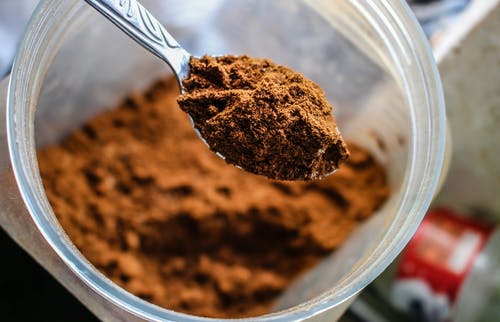Penned By: Aysha Sodha (Certified Dietary Analyst)
Can Protein Supplements Pose Risks?
Excessive utilization of protein powders for bodybuilding endeavors may lead to various complications, notably gout.
Content Overview:
- Understanding Protein Powder
- Scrutinizing the Brand of Protein Supplements
- Strategic Timing for Protein Powder Consumption
- Protein Supplements and Amino Acids’ Impact on Bone Health
- Necessity of Protein Powder for Every Athlete?
Can Protein Supplements Pose Risks?
Can Protein Supplements Pose Risks?
 |
| Are Protein Powders Harmful? |
Understanding Protein Powder:
Protein powder represents the refined iteration of proteins, a fundamental building block within your physique. Typically, your protein requirements are met through meat, legumes like chickpeas and beans, and dairy products such as milk, yogurt, and cheese. Protein powders encapsulate the amino acids or direct proteins present in these foods, making them akin to the protein-rich edibles you regularly consume. However, they may contain more concentrated and distinctive amino acids.
Scrutinizing the Brand of Protein Supplements:
Protein powder functions as a nutritional addendum primarily tailored for individuals engaged in intense sports, often at a professional level. Given the elevated daily protein intake required for these individuals (1.5-2 times higher than average), acquiring this through conventional meals can be challenging. In such cases, protein powder fills the deficit. Yet, the brand and variant of the protein powder chosen are critical considerations. As these supplements fall into the category of over-the-counter drugs, debates around their purity persist. Some products may even harbor substances classified as doping agents, posing potential harm to the body’s performance enhancement. Therefore, careful scrutiny during purchase is imperative.
Strategic Timing for Protein Powder Consumption:
Excessive protein intake implies an unnecessary burden on the kidneys and liver for protein metabolism and elimination. This risk is not exclusive to protein or amino acid powders but extends to excessive protein consumption through food. Surpassing the required protein threshold may lead to the onset of conditions like ‘gout.’ Hence, moderation is paramount. Rather than escalating doses, emphasis should be placed on ingesting the powder post-workout. Timing takes precedence over quantity. Additionally, the amalgamation of anabolic steroids with protein/amino acid powder could potentially trigger certain cancers.
Protein Supplements and Amino Acids’ Impact on Bone Health:
Reckless and oblivious consumption of protein/amino acid supplements may result in osteoporosis and gastrointestinal complications. Elevated protein levels drain calcium from bones, leaving them weak and subject to fractures. Furthermore, poor absorption in the gut may lead to diarrhea, and allergic responses may appear in people sensitive to by-products.
Necessity of Protein Powder for Every Athlete?
Every person, including players, should stick to a well-rounded diet and seek advice from medical professionals and chefs. However, not every individual needs the inclusion of protein powder. Dietitians argue that athletes can fulfill their nutritional requirements through a well-balanced diet, factoring in the augmented demands of their physical activities. Therefore, resorting to protein/amino acid powders or pills is deemed unnecessary. The emphasis lies in adequate meat consumption to meet protein needs. Vigilance is crucial regarding the source and quality of the meat consumed, considering the potential risks. Notably, during the 2011 Under-17 World Football Championship in Mexico, over 100 athletes suffered doping incidents due to the meat they consumed. Therefore, a careful approach to protein powder avoidance and dependence on meat for protein intake is recommended.
The information provided on our platform is not meant as a replacement for professional medical advice, analysis, or treatment. It is important to speak with a healthcare worker before performing any testing or healing processes.
